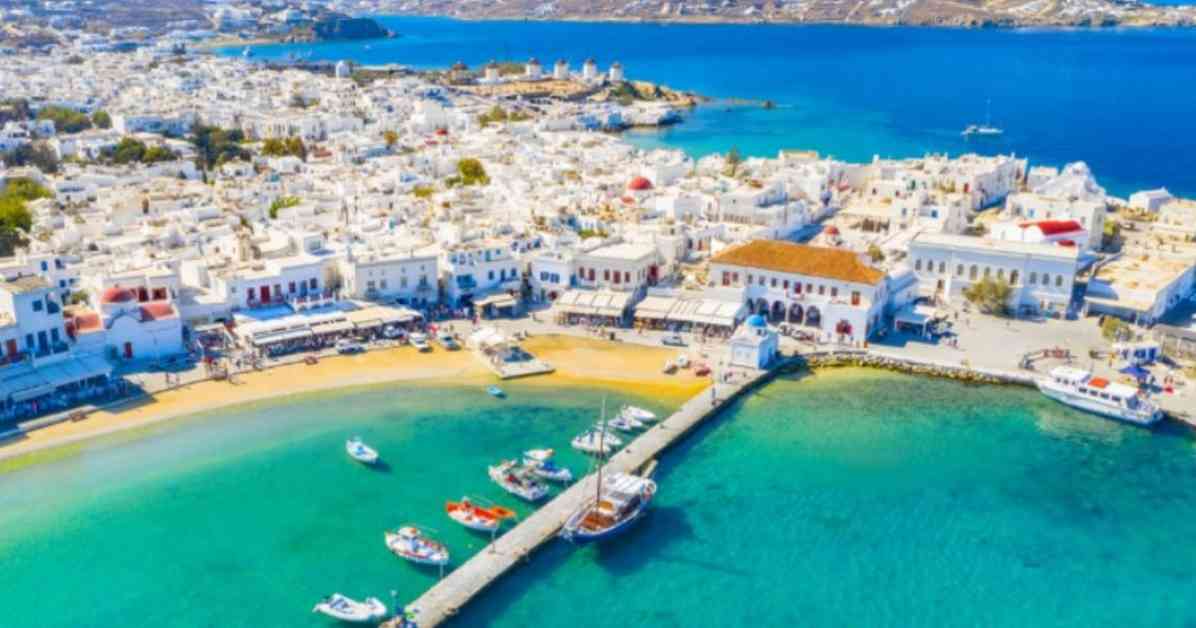Is Mykonos Losing Its Charm?
As the popularity of Mykonos continues to soar among tourists, there are growing concerns about the island losing its rustic charm. UK tourists have been advised to steer clear of this once idyllic European Union holiday destination, with reports of overcrowding, exorbitant prices, and a shift towards catering to short-stay, high-spending visitors.
Chrysiida Dimoulidou, a Greek novelist who has owned a house on Mykonos since the mid-1990s, recently expressed her disappointment with the changes on the island. In an interview with the Telegraph, she lamented, “It’s no longer the Mykonos I loved – they are building everywhere and it’s losing all its charm.” Dimoulidou’s sentiment reflects a growing sentiment among long-time visitors and residents who feel that Mykonos has strayed from its roots.
The Evolving Landscape of Mykonos
Over the past three decades, Mykonos has undergone significant transformations. While some changes have been positive, such as improved infrastructure and amenities, the island is grappling with issues of overtourism. With over two million visitors annually, Mykonos is struggling to maintain its appeal while managing the influx of tourists.
DJ John Walker, who has been frequenting Mykonos for 25 years, voiced his concerns about the island’s shifting focus towards short-term luxury tourism. He noted, “My only issue now is that they seem to cater more for two or three-night stays, [and people] who have loads of money to spend, and [they’ve] pushed out the people who’ve been going for years – we are no longer a priority.” This sentiment highlights the growing divide between traditional visitors and the newer, affluent clientele that Mykonos is attracting.
Balancing Luxury with Responsibility
As stakeholders on Mykonos grapple with the island’s changing identity, there is a push for a more balanced approach to tourism. Christofer Vonglis, the general manager of Nammos Hotel, emphasized the importance of preserving the island’s natural beauty and cultural heritage while catering to the demands of luxury travelers. He stated, “The future of Mykonos lies in striking a balance between its vibrant luxury offerings and the need for responsible tourism that honors the island’s natural beauty and cultural heritage.”
Eric Mourkakos, the owner of Cali Mykonos, echoed Vonglis’ sentiments, highlighting the need for Mykonos to embrace a more diverse range of experiences beyond its famed nightlife. He stated, “While Mykonos is famous for its vibrant nightlife, the island will include more cultural, experiential, and slow travel in the future.” This shift towards a more holistic tourism approach reflects a growing recognition of the need to preserve the island’s authenticity while evolving to meet the changing needs of travelers.
In conclusion, while Mykonos may be at a crossroads in terms of its tourism identity, there is hope for a more sustainable and balanced future. By acknowledging the concerns of long-time visitors and residents, and by embracing a more diverse range of experiences, Mykonos can continue to thrive as a premier holiday destination while preserving its unique charm and character.



























